Step by step, we stride bare footed and silently along the soiled streets of Yangon.
People are appearing from narrow doorways and alleyways, bearing heaped bowls of rice, bunches of bananas and instant noodle packets.
A daily ‘alms round’ to collect food is common practice in monasteries, as it is forbidden for monastics to work for money; but these monastics seem to draw the largest crowds.
I keep closely behind ‘collectors’ that place donations into my basket that fills within seconds only to be speedily replaced. Hands work in silent unison, all part of the same mission.
Here, there is total order in chaos.
The sun blares in the greyish-blue sky. Cars pollute in the littered streets. My feet are burning on the hard, black tarmac.
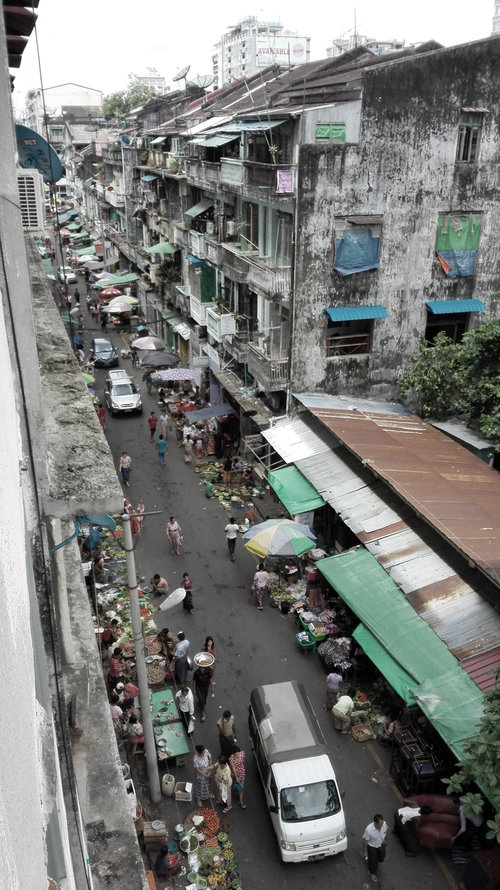
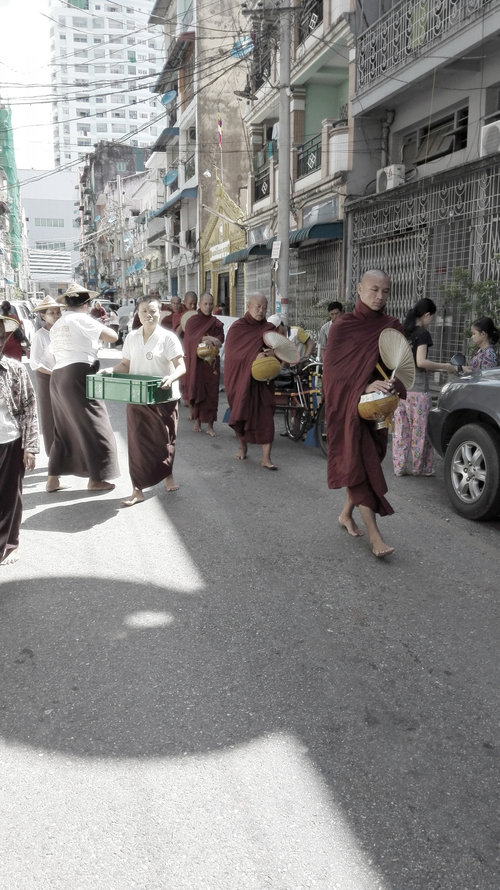
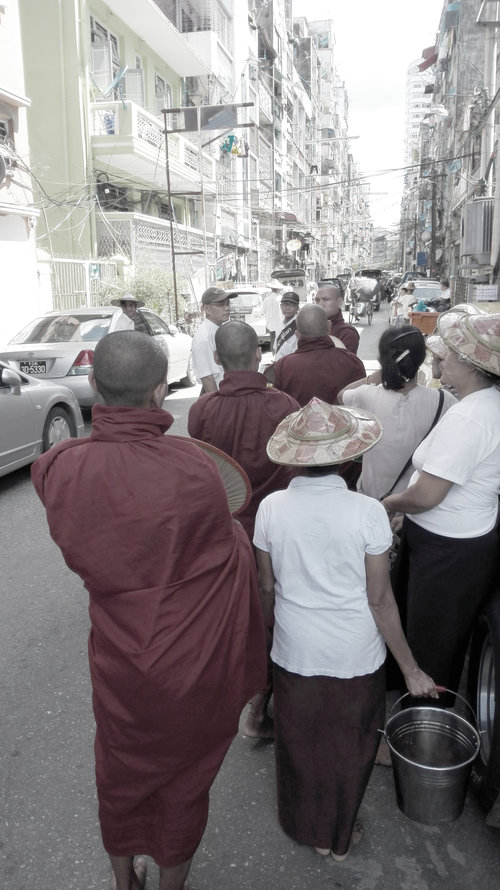
Ten streets later and the collection is complete.
We load the food and ourselves into the back of a van and begin a one and a half hour drive through the potholed streets of Yangon to a town called Thanlyin.
Everyone is smiling. Everyone is helping everyone. Everyone is happy.
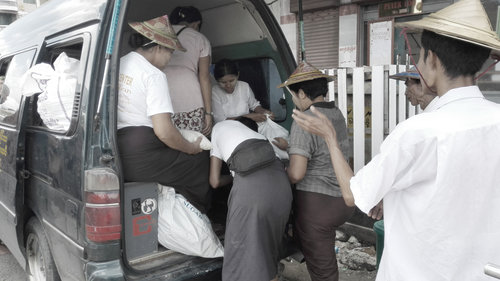
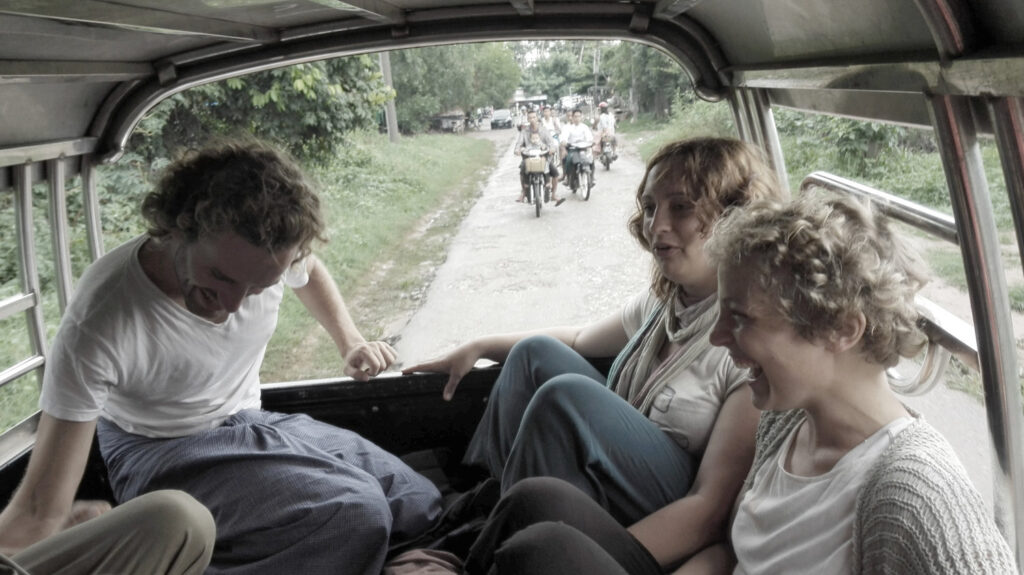
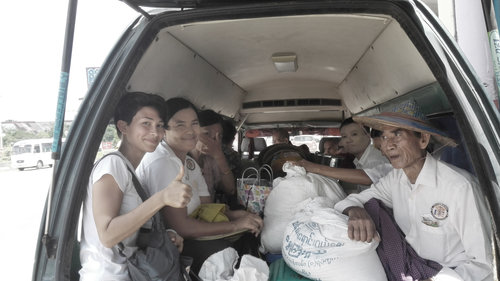
The chaos clears as we approach our final destination and are greeted by European volunteers that heard about the centre through Couchsurfing.
New builds house people and their colourful sarongs which sway in the wind.
Monks are busy walking. Coaches are busy delivering. Dogs are everywhere.
There are huts and concrete buildings, grocery shops and a nursery, kitchens and offices, stupors and meditation halls. A hospital is busily being built in the background.
I am introduced to rows of patients in beds; the aged, the sick, the dying, the disabled, the lonely, the unloved, the diseased. They are all wanted here. They are all being cared for.
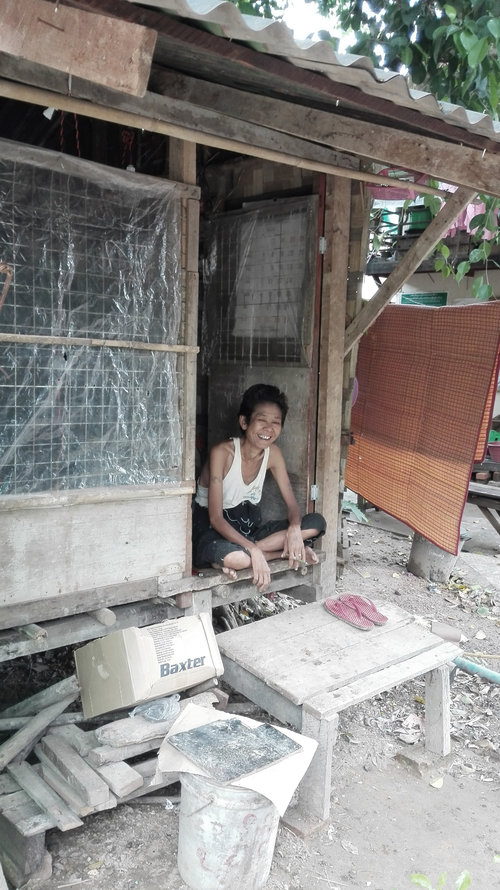
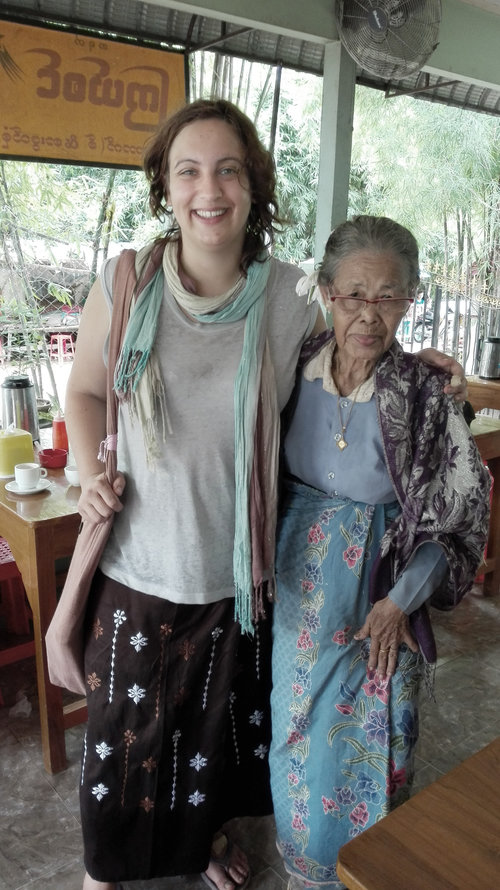
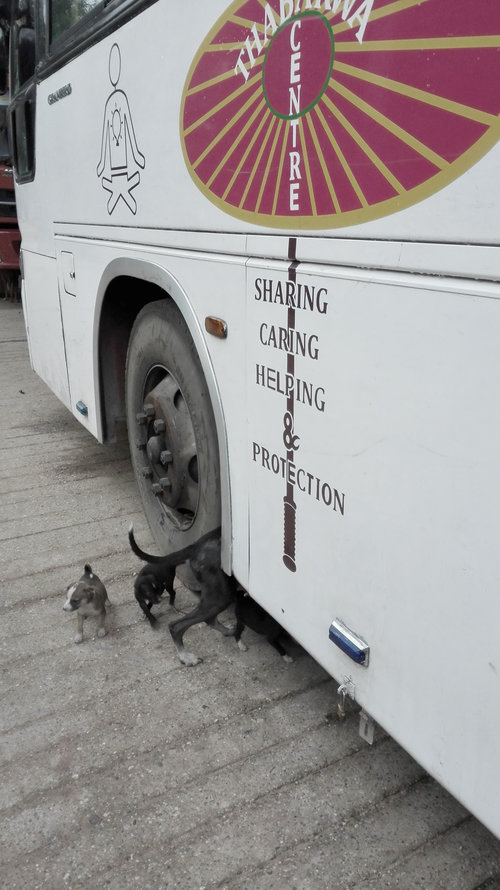
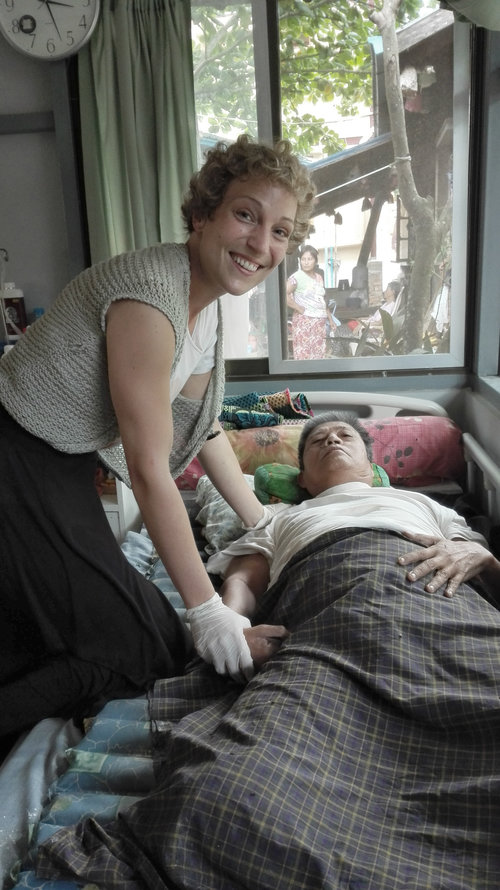
It is 2015, and this is my first flavour of Thabarwa centre.
Thabarwa meaning ‘nature’ in Mynanmar was created by Sayadaw U Ottamasara, a Mynamar business man turned monk.
Their website states:
“Yogis can practice vipassana insight meditation on long-term (permanent, full-time) and short-term (non-permanent, part-time) basis…providing a permanent sanctuary not only to the practicing yogis (meditators), but also to the elderly, infirm, orphans, homeless, helpless, abandoned and lonely individuals, psychiatric and mental cases and offering them food, shelter, medical attention, security as well as encouraging them to listen to dhamma teachings, practice insight meditation and perform good deeds.”
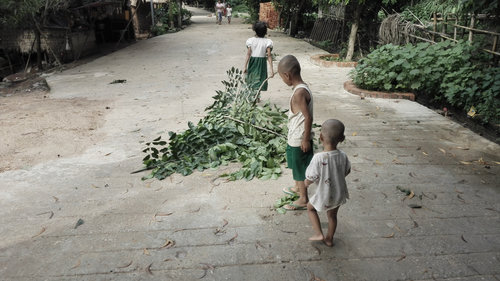
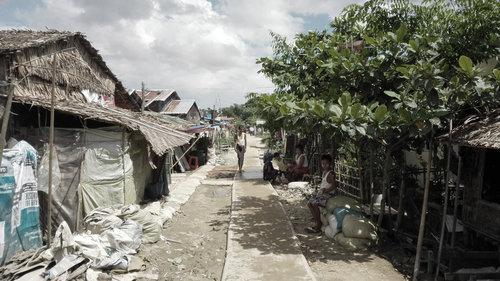

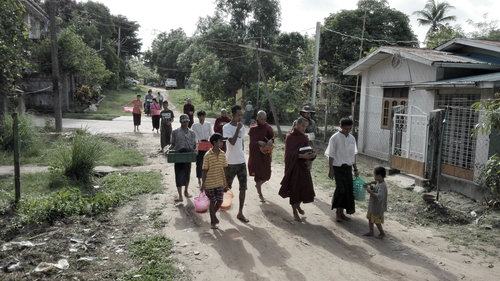
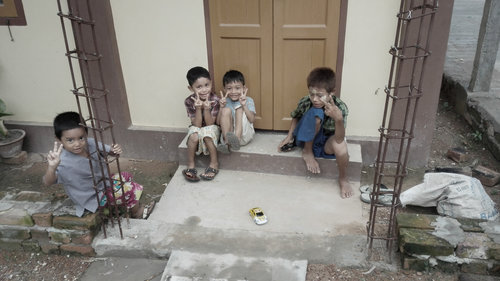
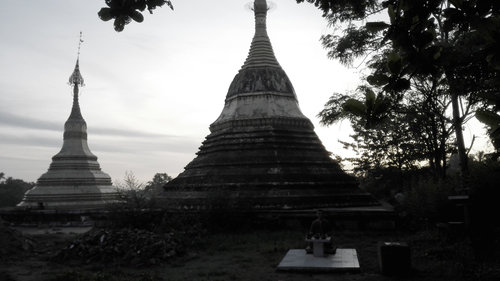
In a Myanmar, still in conflict, I extend my three day stay to two weeks, and meet ‘Sayadaw’ (the Burmese word for great or royal teacher) for the first time who granted me permission to attempt a trash initiative.
Although it is only weeks before the converted water drum trash and recycle can are taken by locals for their own needs, I have the opportunity to understand Sayadaw’s teaching first-hand; that of impermanence, true and false creation, unconditional love, and freewill choice of doing good for doing good’s sake – no motives attached.
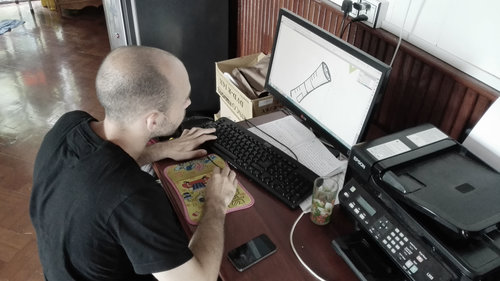
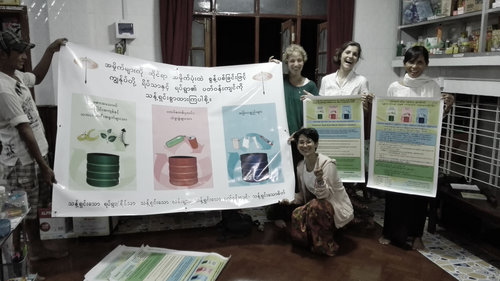
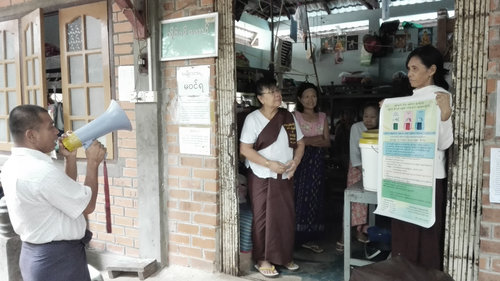
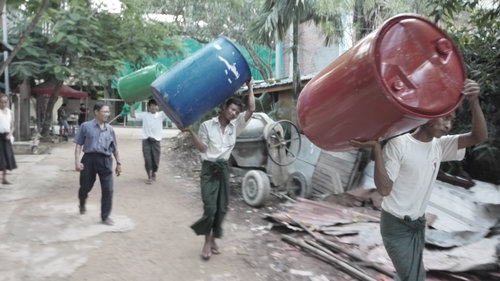
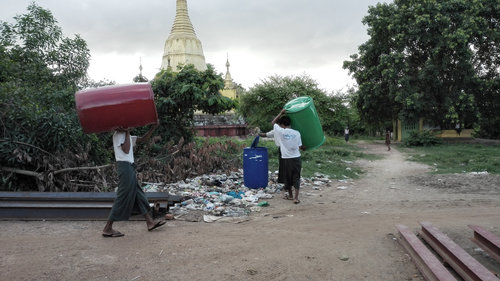
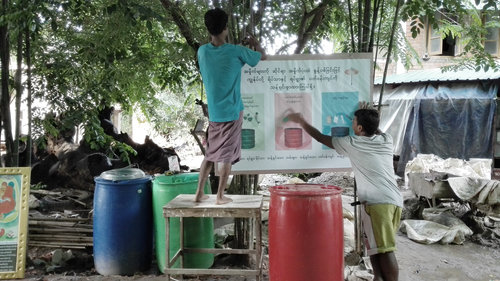
Two years later and my intrigue for the centre and the man who created it is stronger than ever.
I have returned, armed with my mirrorless DSLR, to the ever-improving centre, now at full capacity, to interview the ever-increasing numbers of volunteers, laymen and monastics.
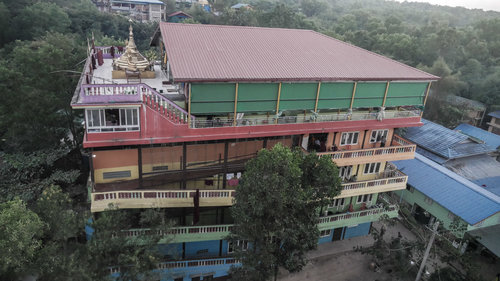
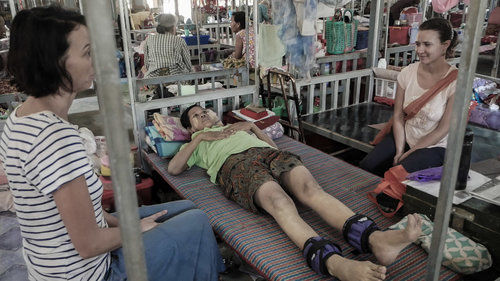
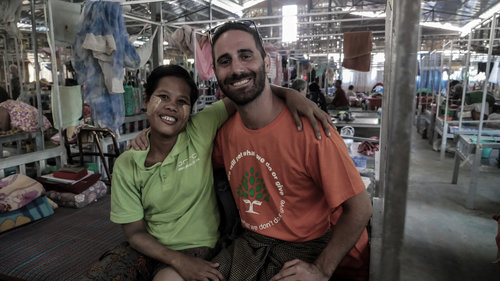
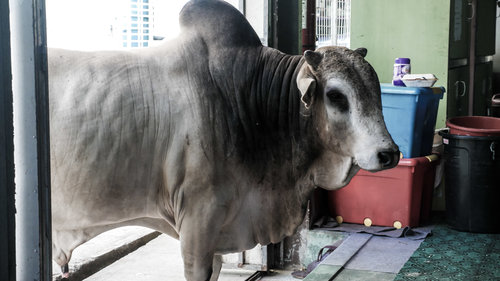
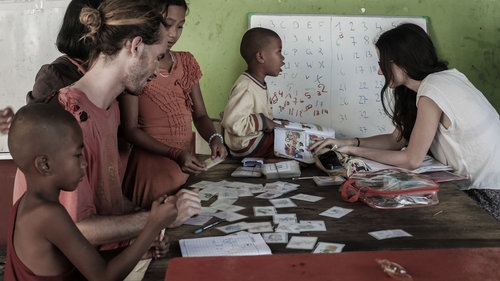
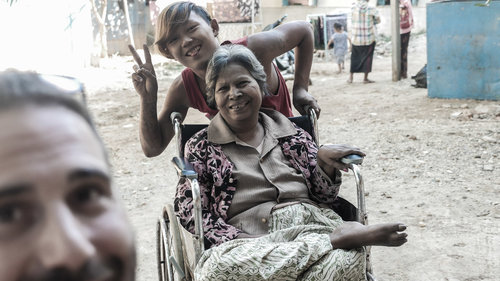
Thabarwa now has seven centres worldwide; ranging from Germany to California.
The new Rainbow Hospital is filled with patients, whilst collections of waste by local truck now occurs daily.
After discovering Sayadaw’s schedule I decide to follow him in Vietnam couple of months later.
As time and location schedules are not fixed, I stay close with one of his entourage via social media and google pin drops till we bump in to each other on the river crossing in Hoi-An.
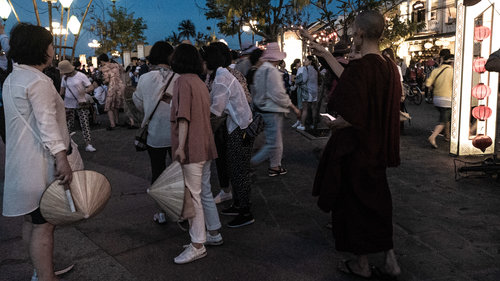
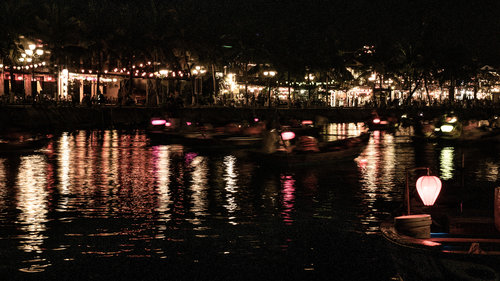
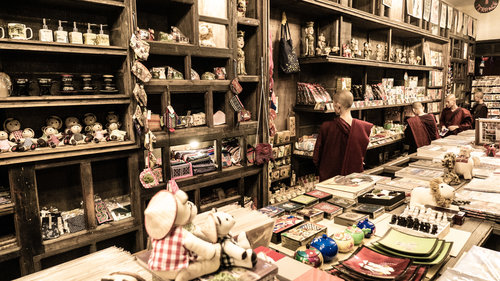
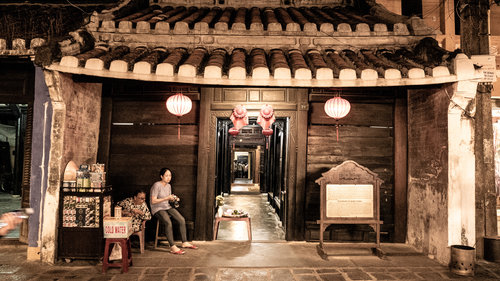
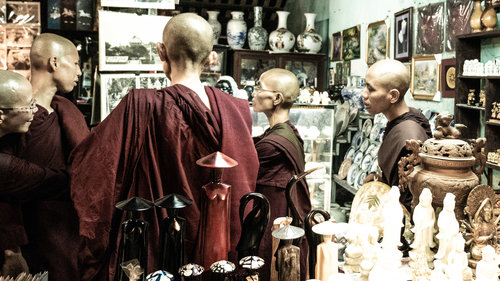
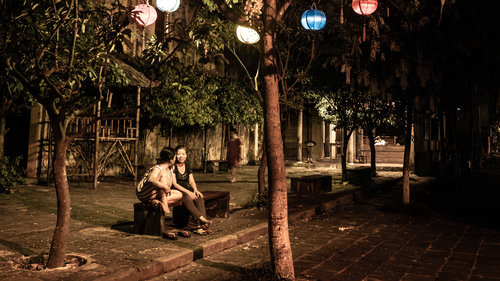
We weave through lantern lit shops with blue glazed tiles displaying their wares in the ancient town, my camera inches apart from Sayadaw, who curiously examines commercial Buddha statues and shop trinkets, constantly followed by a small group of monastic sisters and their mobile phones.
After an hour of filming, the sun has set, and I have captured enough footage for the day. I say goodbye, not knowing when or where we will next meet; excited about the story that is unfolding, step by step.
(Thabarwa Centre will get you a three month meditation visa for those interested in visiting, volunteering and practicing meditation. Please click here for more details.)
